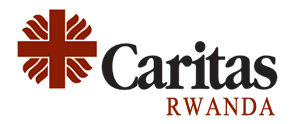
IGIRE-GIMBUKA PROGRAM
‘’IGIRE-GIMBUKA’’ or ‘’Be Resilient, Be Self Reliant’’, is a five-year OVC Program that targets to reach out to 80,000 OVC (Orphans and Vulnerable Children) from Karongi, Nyamasheke, Rubavu and Rutsiro districts. In the implementation of the IGIRE-GIMBUKA program 2022/2027, Caritas Rwanda will continue building on PEPFAR and OVC guidance and experience from the past implemented programs. The objectives of the program activities will be to keep OVC and vulnerable households healthy, safe, stable, and schooled. Services will be delivered based on case management and Caritas Rwanda will monitor the achievements through the annual assessments of beneficiaries’ progress in regard to OVC graduation benchmarks.
Caritas Rwanda’s targeting will prioritize HIV-affected children and GBV survivors. Caritas Rwanda will use a family-based approach, to ensure that all are benefiting from the program.
The first-year target is 41,192 and 1,635 in comprehensive and preventive services respectively. The selection will involve health facilities, local authorities, RRP+’s structures as well as key contacts of hard-to-reach people. These partners will be involved in joint field visits and quarterly meetings to share progress, to identify challenges and propose and put into place appropriate solutions.
The case management approach will inform the program on services to deliver to OVC for primary, secondary and technical, and Vocational Education and Training (TVET) education. Their caregivers will enroll in the Community Based Saving and Lending Groups (CBSLGs) to access financial and digital literacy, learn how to create business plans, income generating activities (IGAs), capacity building, and other. A performance contract with CBSLG* will be established to monitor their progress and graduation from the program.
The program will use evidence-based curricula to build partners’ capacity: the Family Matters! Program (FMP), Coaching Boys into Men (CBIM), Sexual Reproductive Health and Rights (SRHR), among others. Caritas and partners will also engage youth clubs in schools, radio broadcasts, plays, sketches and other messaging through community networks (Umuganda or community work, and parents’ evening called Umugoroba w’Ababyeyi among others) will allow messaging delivery and awareness raising.
The program will facilitate community health workers (CHWs), Case Management Volunteers (CMVs) and friends of families (IZU) when identifying beneficiaries and making referrals of HIV+, GBV survivors and other vulnerable individuals to ARV/ART services for HIV testing and treatment (through the clinic and mobile VCT), to Isange One Stop Centre (IOSC) and legal services for justice. Referral to other services in target communities will be done as well after services have been mapped (nutrition, child registration, among others).
The ideal is that program achievements benefit all women and men and girls and boys equally and that the program will assess its contribution to the improvement of women/men and girls/boys’ socio-economic relations. Additionally, the program will closely collaborate with the health facilities to provide Mental Health and Psychosocial Support Services (MHPSS). The MoH/RBC Mental health curriculum will be leveraged to help GBV survivors, teen mothers and HIV+ and other persons with Adverse Childhood Experiences (ACE) to reduce the shock and trauma of mental health problems. The IGIRE-GIMBUKA will collaborate with other ODA (OVC & DREAMS) IPs to harmonize the MHPSS* service delivery.

